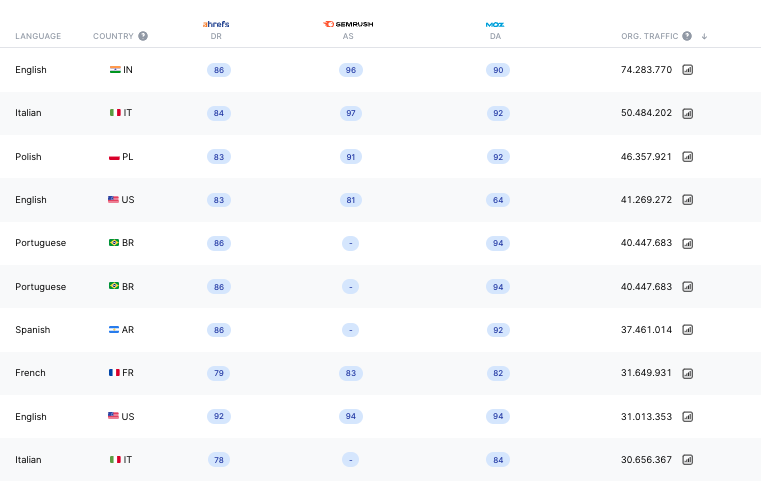High-authority sites: Why quality trumps quantity

When it comes to link building, quality trumps quantity every time.
One of the most effective ways to boost your site’s rankings is by earning backlinks from high-authority sites.
But what exactly are high-authority sites, and how can they elevate your SEO game?
What are high-authority sites?
A high-authority site is a website that is considered trustworthy and credible by search engines like Google. These sites typically have:
- Strong domain authority (DA): Measured on a scale from 1-100, this score reflects a site’s overall SEO strength. The higher the DA, the more authoritative the site.
- Solid backlink profiles: High-authority sites themselves have a lot of quality backlinks from other trusted sources.
- Regular, High-Quality Content: These sites consistently publish informative, well-researched content, often becoming leaders in their industry or niche.
Examples of high-authority sites include well-known publications (like Forbes or The New York Times), popular industry blogs, and reputable news outlets.
Bazoom & high-authority – how to find them?
We know that finding high-authority sites is crucial, and these backlinks are often hidden gems. We always strive to make them accessible for long periods of time, but that’s not always possible. It’s also about seizing the opportunity when they appear.
There are several ways to find high-authority sites at Bazoom
- Sort by organic traffic — generally, the more organic traffic a site has, the higher its authority.
- Sort by Ahrefs, SEMrush & MOZ metrics — the higher these ranking factors, the greater the site’s authority.

Why high-authority links matter
Here’s why securing backlinks from these kinds of sites can have a major impact on your SEO:
- Boosts search rankings: A backlink from a high-authority site acts as a strong vote of confidence in your content. This tells Google that your site is trustworthy, helping to improve your rankings.
- Increases trust and credibility: When users see that a respected website is linking to your content, they’re more likely to trust your brand. This can lead to higher engagement and even conversions.
- More organic traffic: High-authority sites tend to have large audiences, which means your link could drive significant traffic to your site. More importantly, this traffic will be highly relevant, leading to better engagement and lower bounce rates.
How to choose the right high-authority sites
So, how do you determine which high-authority sites are worth pursuing for your link-building strategy?
Here’s what to look for:
- Domain authority (DA): Aim for websites with a DA of 50 or higher, as these tend to have the most influence on search rankings.
- Relevance: Even a high-DA site should be relevant to your niche. For instance, if you run an e-commerce store that sells organic skincare products, a link from a top beauty or wellness blog will have far more value than one from an unrelated news site.
- Content quality: Check the quality of content the site publishes. Does it align with your brand values? Is it well-written and informative? Links from spammy, low-quality sites—even those with high DA—can harm your reputation.
- Engagement and traffic: Look for sites that attract a lot of organic traffic and have an engaged audience. This ensures that any traffic driven by your backlink will be genuinely interested in what you offer.
Conclusion
Securing links from high-authority sites can significantly boost your SEO efforts, but it’s essential to choose your partners wisely.
A few well-placed backlinks from authoritative and relevant sites can drive more impact than dozens of links from low-quality sources.
If you’re looking for help identifying the best high-authority sites for your link-building strategy, Bazoom is here to assist.
2 Comments
Comments are closed.
[…] link quality: Not all backlinks are equal. Prioritize the high-quality links your competitors have secured. These typically come from authoritative, relevant sites within your […]
[…] to reputable sites: Ensure that outbound dofollow links point to high-quality, reputable sources. Linking to low-authority or spammy sites can harm your […]